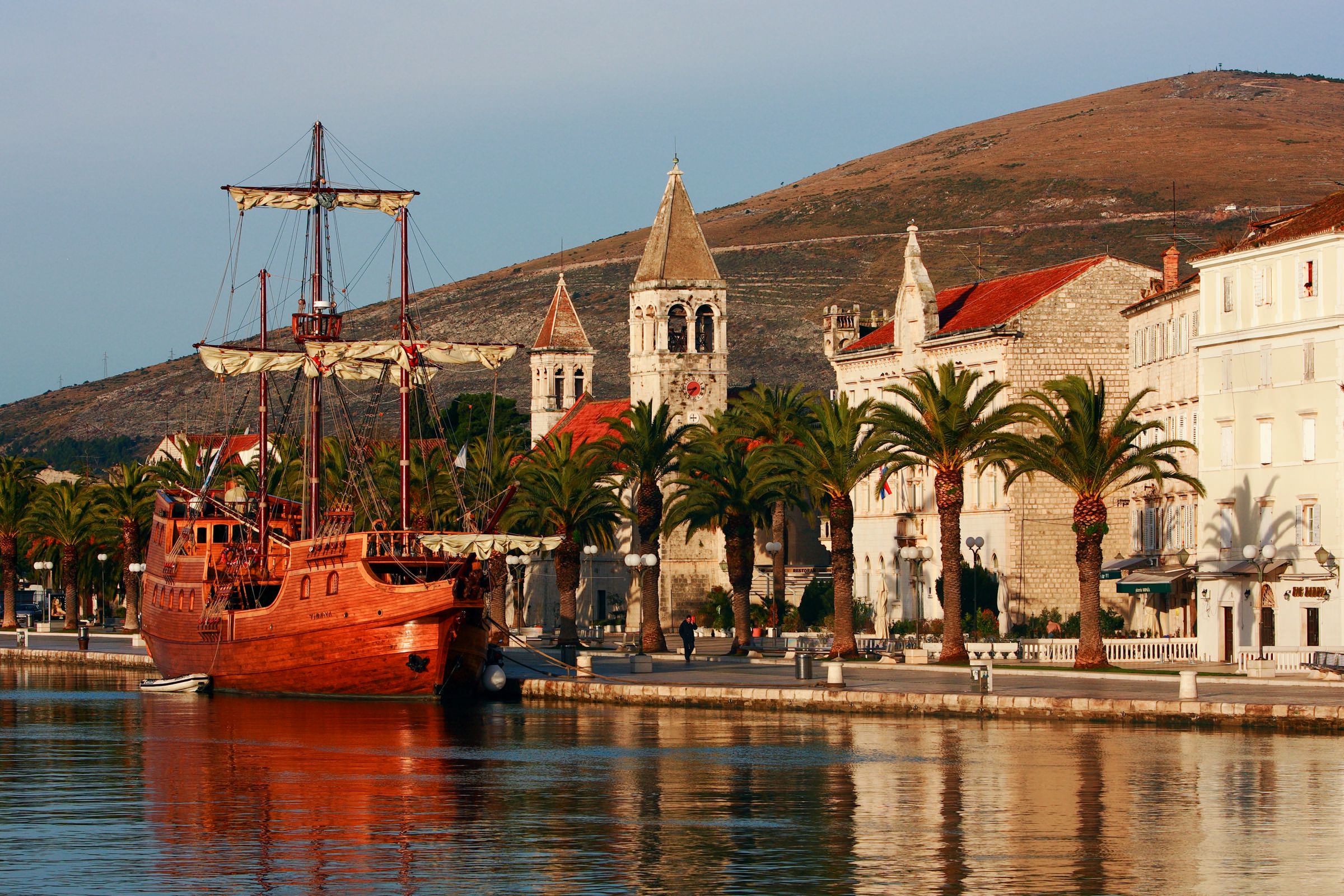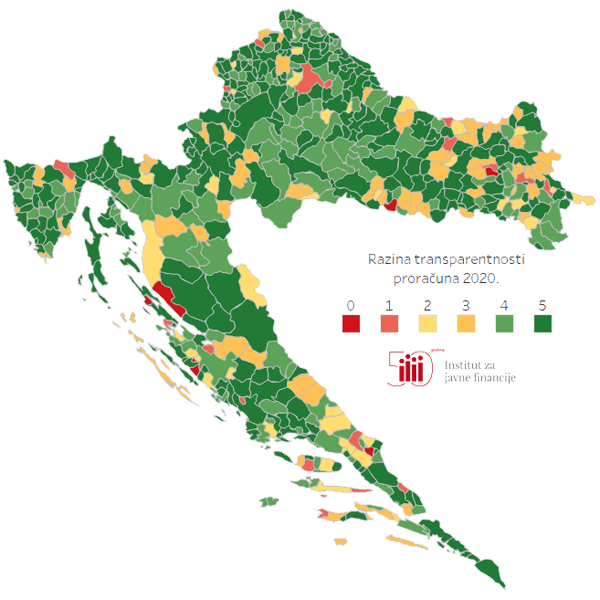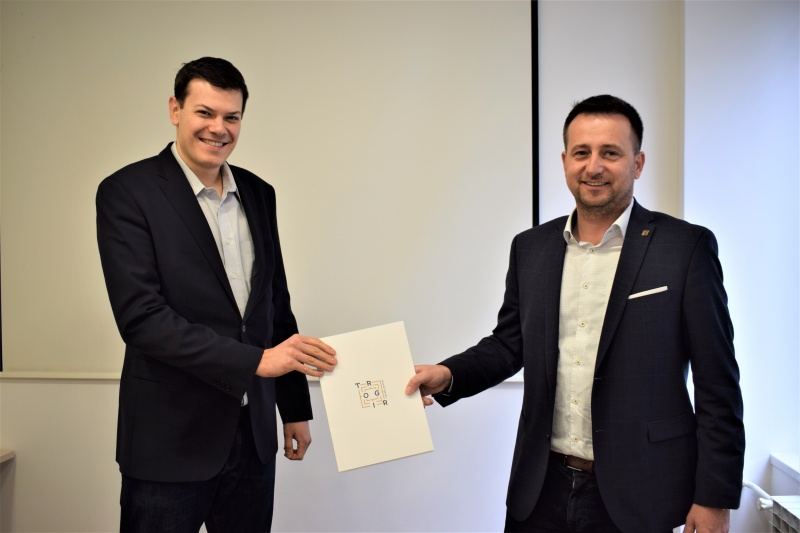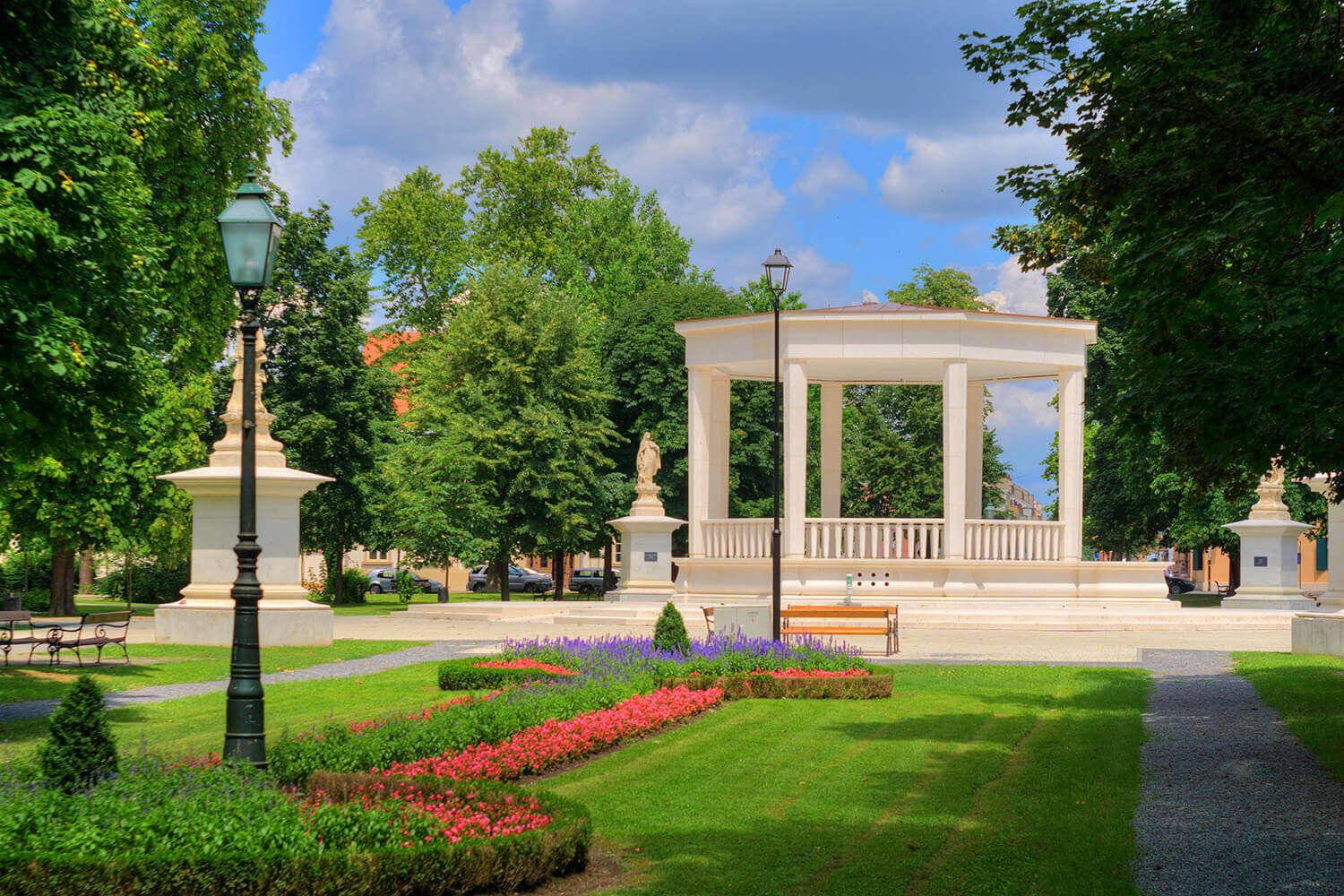Croatia Met NATO Defence Budget Target In 2021
ZAGREB, 31 March 2022 - According to NATO estimates, Croatia last year met the target the allies set for investing at least 2% of GDP in defence and significantly surpassed the target of earmarking at least 20% of the defence budget for equipment.
Last year's purchase of fighter jets significantly increased Croatia's defence budget.
According to a report presented by Secretary-General Jens Stoltenberg on Thursday, NATO estimates that last year Croatia increased its defence budget to 2.16% of GDP from 1.71% in 2020 and that 30.6% of its defence outlays were earmarked for equipment.
NATO member states committed in 2014 to increase their defence budgets to at least 2% of GDP by 2024 and to set aside at least 20% of the defence outlays for military equipment.
Greece earmarked the most for the defence last year, 3.59% of GDP, followed by the United States (3.57%) Poland (2.34%), the UK (2.25%) and Croatia, Estonia and Latvia (2.16% each).
The allies which earmarked the least for defence were Slovenia (1.22%), Belgium (1.07%), Spain (1.03%) and Luxembourg (0.54%).
Greece also set aside the most for military equipment, investing 38.8% of its military budget, followed by Luxembourg (38.2%), Hungary (37.2%), Poland (33%), Turkey (30.7%), Croatia (30.6%), and the US (29.4%).
The allies which set aside the least for military equipment in their defence budgets were Albania, Bulgaria, Slovenia, Canada, Portugal and Germany, ranging from 14.9 to 18.6%.
2/3 of Croats for NATO
Last year NATO commissioned a public opinion poll on its perception which shows that 67% of Croats were for membership in NATO, 13% were against, while the rest did not know.
NATO has the highest support in Poland (84%), Albania and Lithuania (82% each), and Romania and Portugal (79% each), while support is lowest in Slovakia (46%), Montenegro and France (50% each).
7 in 10 Croats believe NATO membership reduces the likelihood of a third country's attack
Sixty-nine per cent of Croats believe that membership reduces the likelihood of a third country's attack.
This percentage is highest in Lithuania (76%) and lowest in the US (42%).
Politics: For more, check out our politics section.
Zagreb Summer Guide: Budget Edition
March 25, 2022 - Does it look like your summer will involve staying in Zagreb, whether it’s due to work or a tight budget? Well, we've got you covered with our Zagreb summer guide covering a range of fun yet affordable activities, including a number of free festivals in the town.
An option that is both cheap and relaxing is to visit one of the town’s major parks such as Jarun or Bundek. Both have spacious grassy areas in both sun and shade, perfect for outdoor picnics, in addition to long tracks for running, rollerblading, or biking, as well as a skate park. There’s also the pebbly beach and the nearby cafes at Jarun, which give an almost seaside feel. Just bring your snacks and drinks, your bike or skates, and some company, and you're all set. And at Bundek, you can catch the Pop Up Summer Garden from mid-August to September, featuring creative art and floral installations paired with live music performances, cocktails, and gourmet food. There’s also one in the Tuškanac forest, for those closer to there.
If you're based in the town centre and are after something more local, look no further than the upper town area. The Strossmayer promenade has its free, annual Ljeto na Strossu (Summer on Stross) festival, starting in early June. It features a diverse range of outdoor events, from concerts to al-fresco bars, to market stalls and some more unusual happenings - check out the best mongrel-dog show.
Just nearby, there’s Ljetno kino Gradec, the open summer cinema at the Gradec plateau, showing regular screenings of both new and classic movies, complete with a stunning setup of outdoor lights. Reservations must be made beforehand, and prices range from 20kn per seat to 80kn per table for 4 people, which is overall pretty affordable depending on how often and with how many people you plan to go.
Also at Gradec, there is the Baš Naš Gourmet & Music festival. Usually, in mid-June, this free festival brings a great summer rooftop bar atmosphere, with its outdoor concerts and DJ sets at a stage located at the highest point in Zagreb, adorned with colourful umbrellas and lamps, chill zones, and a garden oasis. You’ll spend your time admiring this colourful, summery view as you enjoy top-quality cocktails and the best local gourmet food Zagreb has to offer.
And while you’re in the upper town, check out the Art Park located just under Strossmayer, next to the bottom station of the Zagreb Funicular. All year round it is considered an outdoor street art gallery and a popular “hangout” spot, with a great atmosphere and a view overlooking the Zagreb town centre. During the summer, it is as their social page describes, a “city park turned into a magic chill spot for art lovers”. In 2019, ground-breaking art collective Pimp my Pump teamed up with street art studio Lapo Lapo and brought the Art Park project to the larger Ribnjak park (located east of the Zagreb cathedral), resulting in an open space for workshops, movie screenings, outdoor concerts, ping pong tournaments, drawing sessions, yoga classes and more. Entry is free and the park is open every day, throughout both the summer season and the whole year. Moreover, it is a child- and dog-friendly space, so bring over the whole family, as there is something for everyone to enjoy.
For more, check out our lifestyle section.
Mayoral Candidate Davor Nađi Promises to Save HRK 3.2 Billion in Zagreb Budget
ZAGREB, 5 March, 2021 - Davor Nađi, who intends to run for Zagreb mayor in the May local election, on Friday spoke about cuts in the city budget that would enable the abolishment of a surtax, while downsizing the city administration, reducing transfers to citizens and rationalising operations to save HRK 3.2 billion.
"The Zagreb City administration and the city-owned utility companies have about 32,000 employees," Nađi, a candidate of the Fokus party, told a press conference, adding that that number had increased three-fold since 2011.
"We plan to reduce the number of employees to a maximum 28,000 by dismissing people hired to do unnecessary work and through severance deals for early retirement and for redundant staff," Nađi said, adding that that could lead to a saving of HRK 650 million.
There is room to save an additional one billion kuna through cost rationalisation, Nađi believes.
A total of HRK 400 million could be saved from public procurement procedures, while cuts in subsidies and allowances for citizens could help save HRK 700 million. HRK 300 million could be saved annually by reducing or abolishing stay-at-home parent allowance, he said.
"Social transfers are just a way of buying citizens and those allowances have tripled since 2011," said Nađi.
Better management of city property could increase revenue by at least HRK 600 million, he said.
"When we draw the line, we arrive at HRK 3.2 billion, of which HRK 1 billion annually could be used for tax reliefs, HRK 1 billion for the city's financial stabilisation and the remainder for an increase in investments," he concluded
City of Trogir Third in Croatia to Introduce Full Budget Transparency
February 9, 2021 – By introducing an interactive mobile application for full budget transparency, the City of Trogir will soon join the Croatian cities of Split and Bjelovar and the municipality of Omišalj and become one of the most transparent local governments in Croatia.
Together with the Science and Society Synergy Institute, the City of Trogir signed an agreement to introduce the city budget's full transparency. The contract represents the first phase of a project to create a simple and visually attractive application that would give citizens a different budget view.
With the application, citizens would have an insight into ongoing or planned projects, the performance of previous budgets and the budget for next year, or the supplementary budget for the current year. The application would provide an overview of the current budget. At the same time, additional options will compare the plan with the performance and a comparison with previous years' budgets.

Trogir / Photo: Romulić and Stojčić
Trogir to become the most desirable small town on the coast
The City of Trogir wants to bring concrete budget items closer to the citizens through clear and simple numerical indicators and through aggregate indicators that are difficult to understand. They want to educate and sensitize citizens for certain types of strategically important projects. In other words, citizens would get an insight into what exactly their money is spent on.
"Through this project, we continue to introduce smart practices. The goal is to show how city money is managed and involve citizens in the City Administration's work as much as possible. So far, we have done this through participatory budgeting, 'And you are asked!', a project through which citizens themselves directly decide on spending part of the budget money. Last year, the Institute of Public Finance gave us grade five for transparency for the first time. We have also published an online register of city property, and with this application, we are going a step further," said Mayor of Trogir Ante Bilić.
The average assessment of Croatian cities' transparency for 2020 is 4.5, compared to the previous 2019 when it was 4.3. In 2019, Trogir received a grade of 4, and in 2020, thanks to the publication of all five city documents required for insight into transparency, a rate of 5. The number of Croatian cities of excellence increased from 65 in 2019 to as many as 87 in 2020, a positive trend.

Budget transparency of Croatian cities and municipalities / Institute of Public Finance
"Budget transparency is our obligation and one part of the smart city strategy we will develop this year. This is a necessary level of development planning by which we want to make Trogir the most desirable small town on the coast in every sense. Precisely such projects by which we raise democratic standards are a guarantee that we will never end up in the problems we were in three years ago," said Bilić.
Striving for complete city transparency
This interactive visualization of the budget will be available to citizens in two months. It will be implemented by the Science and Society Synergy Institute based in Čakovec, headed by Vuk Vuković.
"The application we will create for Trogir offers an in-depth and visually attractive presentation of all revenues and expenditures up to the fourth level of the budget, according to the functional and economic classification. This data, the functional classification up to the fourth level of spending, has not been given to city councilors at budget hearings who receive budget expenditures up to a maximum of the third level. For example, the fourth level means that you can enter within each city's budget user – kindergartens, schools, museums, libraries – and see who spent how much on salaries, maintenance, what they bought, etc. The third level gives only the total amount received by which user, without going into details. With this presentation, citizens have a more detailed insight into city spending than city politicians," Vuković explained.

Ante Bilić and Vuk Vuković / Photo: Trogir.hr
Following an interactive budget guide, the next step will be a detailed overview of all budget accounts. Citizens would have an insight into each transaction from the budget, from public procurement to entertainment expenses. Then there will be complete transparency of the city towards users.
Bjelovar was the first to introduce transparency application
Thus, Trogir will be one of only three cities in Croatia and Southeast Europe with a completely transparent budget. A similar practice has been introduced by the Croatian cities of Bjelovar and Split and the municipality of Omišalj, which also introduced applications for insight into the city budget. The City of Bjelovar presented a similar application in February 2019. Vuković also helped them, making them the first most transparent city in Croatia, for which they were awarded that year.
"Bjelovar has thus embarked on a unique undertaking in Croatia and this part of Europe, which is to raise transparency to a level that has not been introduced in any public authority so far, to raise the quality of the City Administration's work and strengthen public confidence," said Vuković at the time, as reported from Bjelovar.

Bjelovar Pavilion / Photo: Bjelovar.hr
Bjelovar's positive example was followed by the municipality of Omišalj, which introduced the transparency application at the end of March 2020. The largest Croatian city on the coast – Split – also decided to do so, and neighboring Trogir took over its practice.
Namely, the citizens' right to access information held by public authorities is guaranteed by the Republic of Croatia's Constitution. Therefore, in addition to the moral, the public authority also has a legal duty to provide information on public money spending. However, while in developed democracies such transparency is considered the standard and, for example, all individual transactions from the US federal budget of 1.5 billion dollars are available to the public through an interactive Internet search engine, in Croatia it has never existed before, nor are public authorities considered this possibility.
This trend seems to be changing in Croatia. The transparency of Croatian cities is presented in an interactive map of the Institute of Public Finance.
To read more about lifestyle in Croatia, follow TCN's dedicated page.
Croatia Among 17 EU Countries with Budget Surplus in 2019
ZAGREB, October 22, 2020 - Croatia and 16 other EU member states recorded a budget surplus in 2019 but the public debt was above the prescribed upperlimit of 60% of GDP, shows a second Eurostat estimate released on Thursday.
The EU27 in 2019 recorded an average budget deficit of 0.5% of GDP, down 0.1 percentage point from the previous estimate, released in April.
In 2018 the deficit was 0.4%.
The euro area saw a budget deficit of 0.6% of GDP in 2019 and of 0.5% in 2018, which confirms the previous estimate, released in April.
Budget revenue expressed as a share in GDP was 46.1% in 2019 in the EU while budget expenses accounted for 46.7% of GDP.
In the euro area budget revenue was 46.4% and expenses 47.1% of GDP, Eurostat said.
Denmark has highest surplus
A total of 17 EU countries recorded a budget surplus, with Denmark reporting the highest, of 3.8%, followed by Luxembourg (2.5%), Bulgaria (1.9%) and the Netherlands (1.7%).
A budget surplus of below one percent was reported by a group of countries led by Austria, which reported a budget surplus of 0.7%.
Croatia had a general government surplus of 0.4% of GDP, with the surplus rising by HRK 112 million to HRK 962 million. In 2018 the share of the budget surplus in GDP was 0.2%.
A budget deficit at the upper allowed limit of 3% of GDP was reported by France, while Romania exceeded it with a budget deficit of 4.4%.
EU, euro area debt down in 2019
In the EU27 the public debt, expressed as a share in GDP, in 2019 dropped to 77.6% from 79.6% in 2018, with the April estimate having been slightly revised down.
In the euro area the public debt in 2019 was 84% of GDP, which confirms the April estimate.
As for 2018, the estimate was revised slightly up, to 85.8% of GDP.
Public debt highest in Greece
A total of 11 EU countries in 2019 crossed the upper allowed level of debt expressed as a share in GDP of 60%.
The highest debt to GDP ratio was reported by Greece, 180.5%, Italy, 134.7%, and Portugal, 117.2%.
Croatia's debt-to-GDP ratio in 2019 was 72.8% or HRK 292.9 billion. In April the share of debt was estimated at 73.2% of GDP and the debt amounted to 293.02 billion.
In 2018 Croatia's public debt totalled 74.3% of GDP, shows the latest estimate. In April it was estimated at 74.7%.
In 2019 Estonia had the lowest debt-to-GDP ratio, of 8.4%.
FinMin: Keeping Jobs Is A Priority
ZAGREB, Sept 2, 2020 - Deputy Prime Minister and Finance Minister Zdravko Maric said on Wednesday after an inner cabinet meeting that keeping jobs is a priority and that support measures for sectors affected by the coronavirus crisis, such as hospitality and transport, will be made known in the next few days.
Maric made the statement while responding to reporters' questions about the continuation of measures for the hospitality sector, which Tourism and Sports Minister Nikolina Brnjac had announced earlier, saying that they were on the table and being taken care of.
He said that internal consultations were ongoing and recalled that the government had generously financed support for the economy, however, he noted that everything has its fiscal repercussions and fiscal possibilities.
"This year the budget result is not a priority, however, in these circumstances it is necessary to find funds and ensure budget sustainability for this year and the years to come," said Maric.
Keeping jobs is a priority, he said, recalling that the government had presented a shorter working week and that the recently approved SURE program would provide a little more than €1 million in loans for Croatia.
Intensive talks are underway regarding the generous envelope that is part of Europe's recovery plan, Maric said, adding that testing was already underway regarding the use of support in hospitality.
Maric added that he understands the problems faced by the occasional transport sector whose representatives earlier in the day handed out leaflets to lawmakers listing their problems.
We have embarked on horizontal measures and have continued to support tourism and transport and everything will be made known in the next few days, he said.
Our priority is to keep jobs and we are willing and ready to do the best we can, he added.
Maric explained that there had not been any money in the budget for the first round of support either, however, the money was eventually found and efforts would be made to continue to preserve jobs.
For the latest travel info, bookmark our main travel info article, which is updated daily. Read the Croatian Travel Update in your language - now available in 24 languages
Ogulin: Budget Doubled, Investments Arrive, 250 Work Positions Open
As Novac/Gradonacelnik.hr writes on the 29th of March, 2019, Ogulin has made a great many steps forward economically.
''Across all areas, the numbers are growing and visible progress has been made. We believe that our honest and committed work and the desire to contribute to the development of Ogulin in all fields has been recognised and that it's the only reason for our victory, and at the same time, the foundation on which we'll build our further activities and plans,'' said Mayor Domitrović for Gradonačelnik.hr who won a majority in the City Council three weeks ago.
Early elections held in Ogulin three weeks ago, where SDP won by a landslide, winning 9 out of 17 seats in the City Council, saw a somewhat impossible situation which had taken hold of the local area finally overcome. The citizens of Ogulin came out and gave their support, SDP's list won a majority and with its nine mandates at the constituent session of the City Council scheduled for April the 5th, it can independently form a government, declare what the budget will be, and proceed with the implementation of all of Ogulin's planned projects.
Only five SDP councilors entered during the recent local elections in the City Council, so the majority of nine councilors formed with three councilors from the now independent Željko Stipetić's list (former HSP AS) and one councilor of the DSS came to be. However, after the coalition collapsed at the end of last year, Mayor Domitrović remained without the support of the City Council, which is why the budget wasn't adopted for this year, so the government, according to what is set out by law, dissolved the City Council and announced early elections.
''We believe that our victory is the result of our work in the past year and a half, which our citizens have recognised. We took the reigns with a simple way of being that involves work, order and discipline, and the results we achieved were that people, having first given me their trust me a mayor in 2017, have now given that same trust to the party who had me run as a candidate, because in a year and half, we've shown that we can do much more and do it in a much better way than our predecessors. In all areas, the numbers are growing and visible progress has been made. We believe that our honest and committed work and our desire to contribute to the development of Ogulin in all fields has been recognised and that this is the only reason for our victory, and at the same time the foundation for our further activities and plans,'' said Mayor Dalibor Domitrović.
The figures speak volumes about what was done, how it was done, and the level of effort involved. Over the last year and a half in Ogulin, an impressive 250 new employment positions were opened, thanks to a large investment cycle that kick-started the economy.
Domitrović and his team succeeded in solving several property related legal problems that had been blocking investors and their cash, and because of which the new Ogulin entrepreneurial zone sadly became obsolete. The area is now fully completed and ready, and now Ogulin has requested an additional 47 hectares of land from the state, because the interest of potential investors certainly hasn't gone away.
"In the old and in the new entrepreneurial zone, investment projects worth 1.25 billion kuna exist, which, in addition to other projects, in the coming years, could turn Ogulin into a large construction site where more companies from the Ogulin area will have the opportunity to earn money,'' Deputy Mayor Danijel Vukelj said.
Since the beginning of their mandate, they have managed to launch two large projects that had been deadlocked for decades - the Ogulin flood defense system, that is, the construction of Ogulin's retention system, a project worth 180 million kuna and which is led by Hrvatske vode (Croatian water), and the construction of the Ogulin observatory project worth 250 million kuna, run by Hrvatske ceste (Croatian roads), which is dealing with major traffic problems that hinder the development of entrepreneurial zones and thus the local economy of Ogulin. Both projects will be funded by very welcome EU funds.
As far as Ogulin is concerned, or more specificially its administration, currently, projects worth 272 million kuna are in the works, for which EU funds have been contracted. Projects worth 80 million kuna have been either reported or are being prepared.
"We've started dealing with the issue of waste management, which has been neglected for many years now across Croatia and in the majority of cities and municipalities. We can do a lot of things in a very short time to meet the EU conditions that the Republic of Croatia has now accepted. The establishment of a waste management system will cost 40 million kuna. Most of this amount will be financed by EU funds, but the implementation itself, from sorting out the Sodol landfill, construction, the recycling yard, the equipment and vehicle procurement, as well as citizen education and other activities, will last several years,'' Vukelj explained.
Make sure to follow our dedicated lifestyle and politics pages for much more.
Click here for the original article by Gradonacelnik.hr on Novac/Jutarnji


